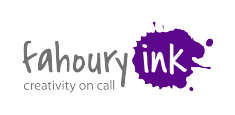The internet is both a boon and a bane for copywriters and content marketing professionals. The sheer volume of information readily available (some fantastic, some not-so-great) makes it hard to narrow down must-have resources.
We’ve canvassed the master copywriters in our professional network and the majority agree on the tools that will help elevate the effectiveness of your content. Are they currently in your toolbox?
A swipe file — Ah, the good old days when this was a literal folder for creative inspiration. Mine was filled with clever headline examples, compelling calls to action, even direct mail pieces with interesting folds, formats or color combinations. There’s nothing worse than staring at a blank screen, so the idea behind the swipe file was to provide a source of inspiration (and to be clear, not permission to lift anyone else’s work).
Today’s swipe file takes the form of digital email and bookmark folders. Candidates for inclusion could be an example of a clever nurturing campaign, a running list of email subject line prompts (for example, “The real cause of…”) or examples of powerful word usage that grabs your attention.
A library card — This one’s obviously part of the long game in honing highly effective writing skills. A writer is foremost a reader. Personally, I’ll never buy a book until I’m convinced I’ll re-read it numerous times. I’ve got a long list of marketing, content and business books on my to-read list, and I’ll reserve one or two a week online so I always have a go-to in hand during any downtime.
Haven’t been to a library lately? You’ll be pleasantly surprised at the resources unlocked by the magic barcode on your library card. Our local library system just announced free access to both the New York Times and Wall Street Journal (take that, paywall!) Many libraries also provide free access to big-ticket business databases you can use to research competitors or prospects, identify market gaps and inform your content marketing strategy.
Online thesauri — It’s easy to get stuck in a rut using the same descriptors and adjectives in your copy. My current darling that must be killed* is accelerate.
A quick perusal through resources like Snappy Words, Power Thesaurus, Free Dictionary and the granddaddy of them all, Merriam-Webster Thesaurus delivers an array of options like hustle, step up, hasten, intensify and escalate. They may not all be applicable but they’re great jumping-off points.
Grammarly — Yes, AI is not flawless. But a second set of eyes never hurts, even if they’re robotic (and free!).
Grammarly for Mac sits on your desktop and prompts you with mostly helpful writing suggestions across apps, social media, emails and other documents — basically everywhere you’re communicating. A sister app is available for PC; there’s also a Chrome plug-in.
Google Scholar — Need a credible stat or reference for a more formal or academic-like writing assignment? Google Scholar is your hook-up. It lets you search across multiple disciplines and sources, including abstracts, professional societies, universities and other places where smart people hang out.
Keep in mind that some documents may be behind the publisher’s paywall. Pro tip: Can’t access a document with the stats you need? Very often, a press release or executive summary will contain what you need and be more easily accessible, so be sure to poke around News or Press sections of the publisher’s website.
SmartBriefs — A treasure trove of the latest news and information, all organized by industry. Choose from 200+ niche email newsletters, subscribe to the ones in your clients’ industries and boom! You’ll look like a genius.
Don’t overlook the value of SmartBriefs in your own biz dev efforts. Shoot an article of interest to a prospect or dormant client to stay on their radar, and be sure to check out SmartBriefs on marketing and other small business topics.
Any resources you’d add to this list? Let us know what we’re missing!
*Often attributed to beat poet Allen Ginsberg, “kill your darlings” refers to editing out self-indulgent or repetitive crutches for the greater good of your writing.

